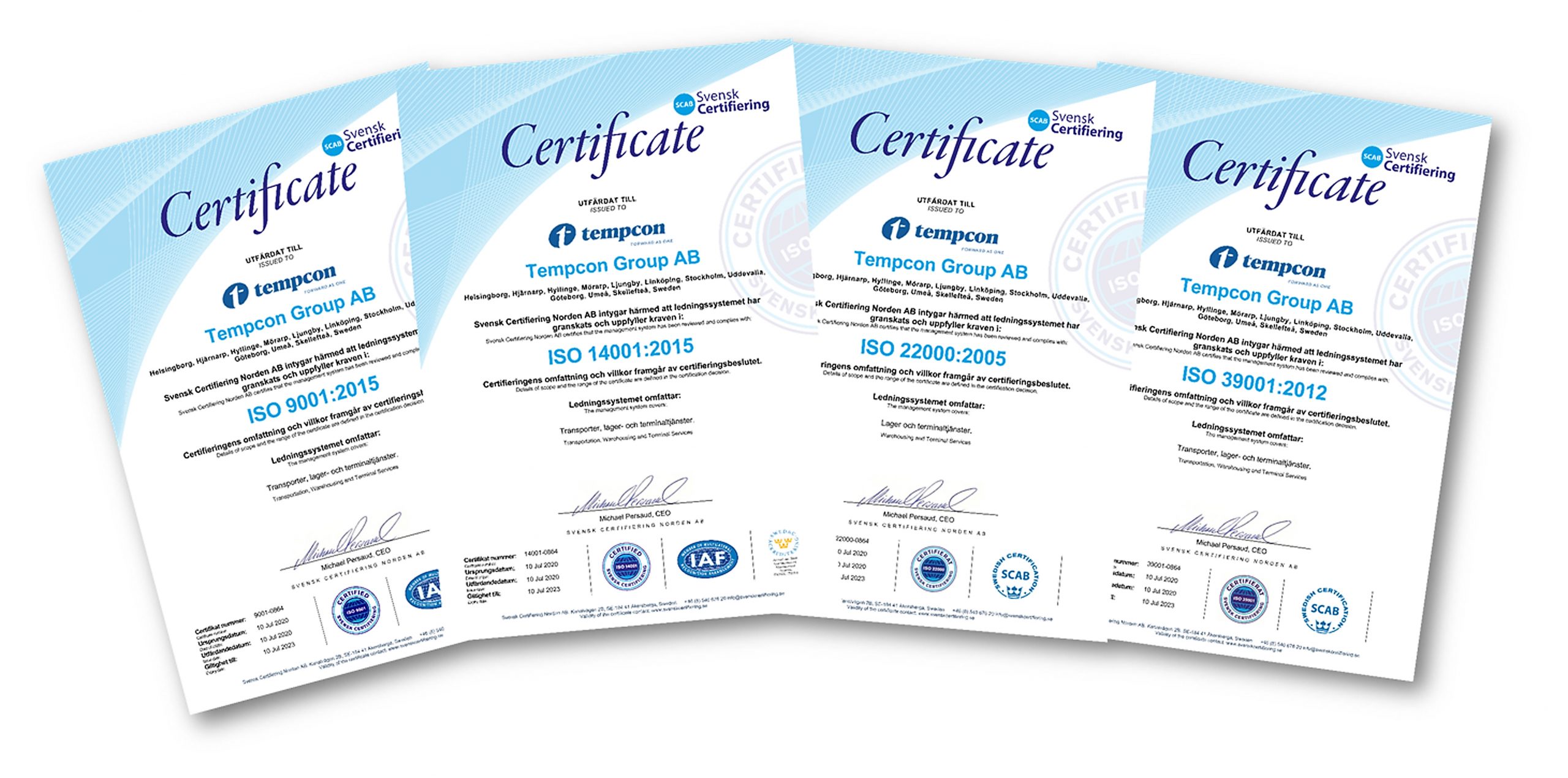During the summer of 2019 the journey towards having the most advanced management system in the industry began involving an intensive and long-term objective to certify the companies according to four standards. ISO 9001 quality, ISO 14001 environment, ISO 22000 food safety and ISO 39001 traffic safety. The work towards these certifications was completed at the beginning of the summer and has now resulted in a successful audit and certification. Many of our employees throughout the country have dedicated countless work hours to bring this to a successful conclusion. The Group also holds ISO 26000 which is an international guidance for social responsibility but is not itself a management system standard.
Several subsidiaries have previously held one or more certifications, however the situation today is that the Group and ten of the twelve subsidiaries are certified as above with the latest acquisitions connecting to the management system at a later date. We at Tempcon have seen this as a natural and obvious step as demands for certification have come from many of our customers whilst at the same time these standards indicate a credibility in the offerings we have to the market.
The audit of the so-called Multisite certificate was carried out by Svensk Certifiering Norden AB and involved the use of a formula stating the number of days the audit should take and number of sites to be visited. During a three year period, all sites will have been visited with the head office receiving visits every year. Recertification takes place every third year and involves an audit of the entire management system. That we chose to seek certification in four standards at the same time in a very short space of time was seen as a major challenge by Svensk Certifiering Norden. They had previously not conducted an audit of such magnitude but admit the Group coped very well and the audit process was excellent. The Group optimised documentation in a considered manner with great enthusiasm from the management.
It is important to remember that a management system should ultimately benefit the business and be seen as an aid for management to administer and follow up operations. It is imperative that the system becomes an integral part of the daily operations and subject to improvement.
